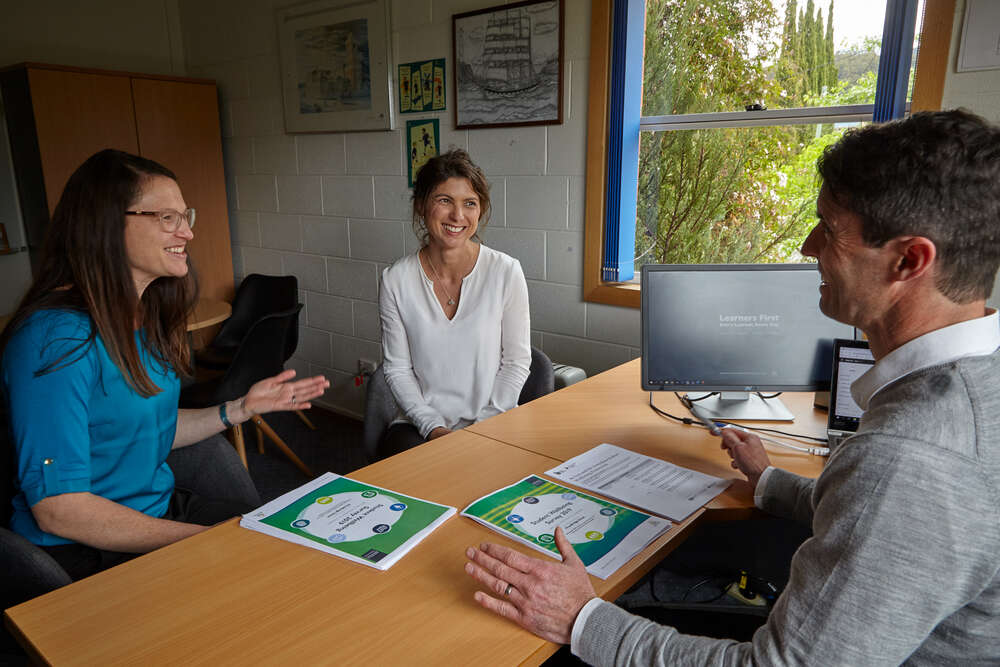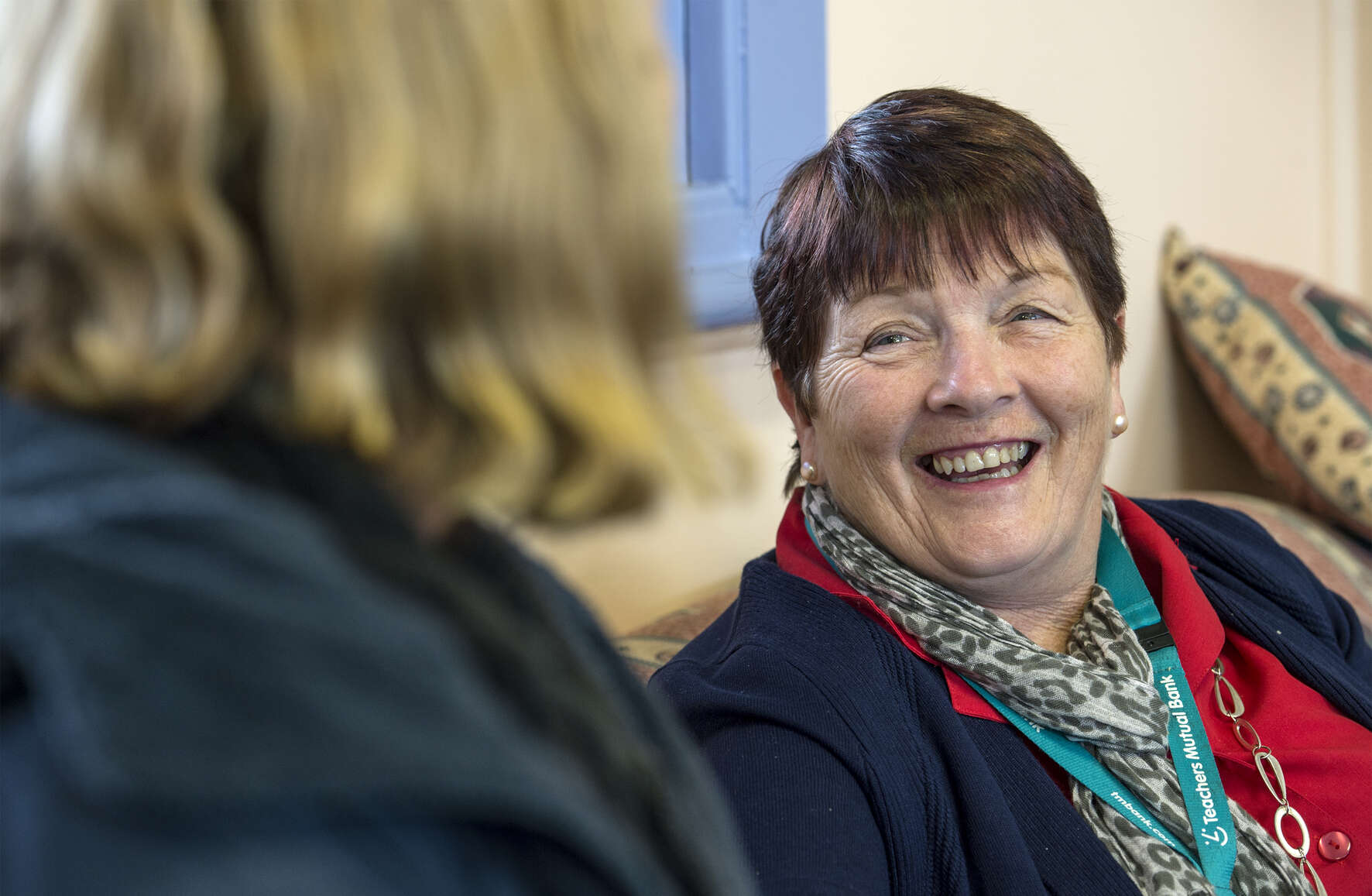
Educators are also adjusting to a new set of circumstances, whether it’s getting accustomed to a different school or curriculum, building rapport with new families or welcoming new students to the classroom.
The start of a school year is an exciting time, full of new possibilities and opportunities. It’s also a period that’s filled with change.
Like most teachers, your attention is probably directed towards your students; helping them adjust to an unfamiliar classroom, new timetables, and different teachers. Some students may be navigating additional change as they adjust to a new school, town or even country.
Amid these changes at the student level, it's important not to overlook your own experience when navigating transitions. Educators are also adjusting to a new set of circumstances, whether it’s getting accustomed to a different school or curriculum, building rapport with new families or welcoming new students to the classroom.
Investing in strategies to help you navigate this transitional period will stand you in good stead to support your students.
As Cathy Smith, Deputy Principal, Beverley District High School, and formerly the Be You Action Team and Wellbeing Leader at Coolbinia Primary School said:

Looking after yourself not only helps you in the classroom, but it also models positive behaviours for your students and school community to emulate too.
Support strategies to navigate transitions.
We've collated key strategies to support you through challenging transitions:
- Connect with colleagues: A recent study highlighted the importance of social support among teachers as a protective buffer against poor educator wellbeing. It might be worth looking into the possibility of joining or forming an educator support or social group where you can share experiences and learn from one another. Peers and mentors could shed light on strategies that have helped them through a difficult transition.
- Set boundaries: Prioritising tasks is essential at any stage of your career, but it’s ever more important during a period of transition. On top of day-to-day teaching, periods of transition require an investment of time to learn a new curriculum, adjust to a new school or get settled in a new country. Be sure to prioritise your professional development and block out time in your calendar to focus on your own learning and reflective practice. This allocated time can give you the time and space to reach out to peers for professional learning, research a new curriculum or engage in self-care.
- Familiarise yourself with your school’s policies and processes: Your school’s policies and procedures provide a solid framework for understanding a range of areas such as the school’s operations, who to reach out to if you need support, and how educators are expected to interact with families. Developing this foundational knowledge can provide you with a solid structure as you organise classroom activities, develop lesson plans and more.
- Be patient and kind to yourself: Periods of transition can present big learning curves. You can’t possibly know everything overnight (or even in term one!). Give yourself some grace as adjusting to a new situation takes time and patience.
- Adopt a strengths-based approach: Be aware of your own strengths, whether that’s finding a new way to conceptualise an idea, developing creative lesson plans, or focusing on the end goal of each lesson. Using your strengths in the workplace improves your self-efficacy and wellbeing, but remember we can’t be experts in everything, so don’t be afraid to lean on the strengths of others. Doing so also gives other educators an opportunity to apply their strengths as well.
- Avoid taking on too much: The basics include starting the school year by focusing on the core business of teaching and learning. Ensuring your classroom is a safe space where you and your students can learn and grow together is also a foundational starting point.
- Build rapport with students and families: Get to know your students’ interests, personality and learning preferences. Not only will students and families appreciate the care and interest you show towards them, but building rapport can help you to make concepts more relevant to your students – for example, if you know a student loves football, you might be able to tailor some of the learning to that which can improve engagement. Building rapport can also strengthen your own sense of belonging in the school community.
- Draw on skills developed during other challenging transitions: When COVID-19 closed school doors, educators and students needed to quickly adapt to a remote learning environment. What skills and practices did you develop through this period? Perhaps creating a new routine amid a ‘new normal’ gave structure to your days, while being flexible might have helped you and your students adapt to an unfamiliar experience. Indeed, a recent study of 164 Australian secondary school teachers found that teachers who were adaptable reported lower work disengagement and improved commitment to their work. Adaptability, among other skills that you might have harnessed during COVID-19 lockdowns, can similarly be applied to maintain, or improve wellbeing when navigating new challenges today.

The start of a school year is an exciting time, full of new possibilities and opportunities. It’s also a period that’s filled with change.
When navigating a period of transition, it’s easy to feel overwhelmed by change. While embedding these strategies into your days can help to keep stress at bay, it’s also important to take a step back and keep the big picture in mind.
Think back to why you became an educator in the first place, what motivates you at work, and the impact you’re making on your students’ lives every day.
Transitions are inevitable, but it’s often the meaning derived from teaching, your purpose, and the role you play in student’s lives that remain constant as circumstances change.
Download Be You’s Beyond Self-Care: An Educator Wellbeing Guide to learn more about educator wellbeing and how you can support a thriving workplace culture.